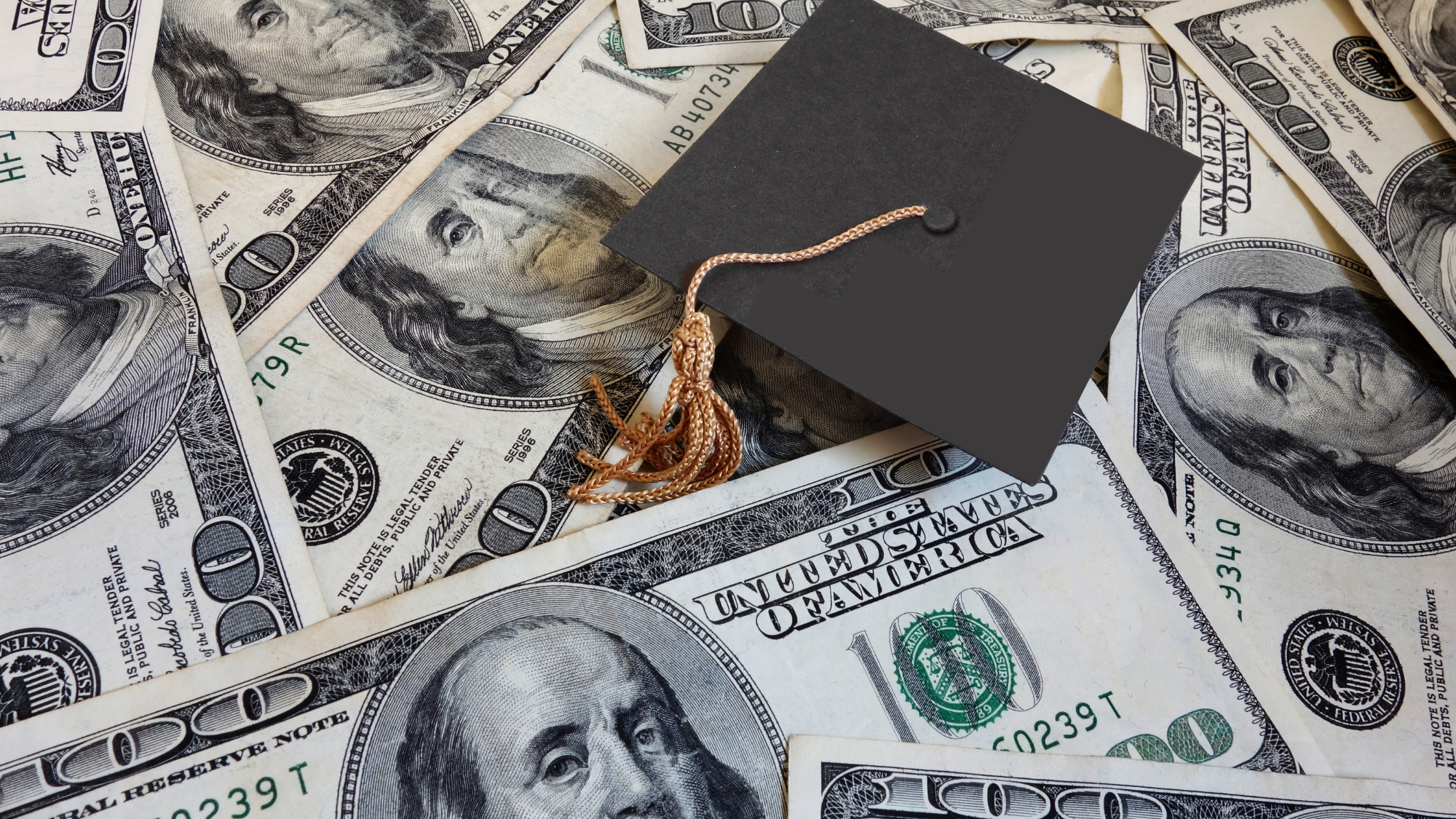What is student loan forgiveness?
On August 24, President Biden announced a highly anticipated decision on student loan forgiveness.[1] For individuals earning less than $125,000 ($250,000 for married couples), the U.S. Department of Education will provide up to $20,000 in debt cancellation to Pell Grant recipients and up to $10,000 to non-Pell Grant recipients with federal student loans.[2] The precise mechanics of when the loan forgiveness takes place is still unknown, a key fact for borrowers in states that tax student loan forgiveness. And while the announcement was greeted by some and dismayed by others, commentators have taken note that just as certain as death is to life, so too are tax consequences.
The United States defines gross income as “all income from whatever source derived.”[3] Under typical circumstances, a loan is not considered gross income because of the corresponding liability to pay back the principal (plus interest). However, if a loan is ever partially or completely forgiven, the discharged amount can be gross income and subject to income tax in the year the cancellation occurs (unless one of a number of conditions are present).[4]
In 2021, Congress amended the Internal Revenue Code to exclude from gross income any forgiven post-secondary loan made, insured, or guaranteed by the United States, or similar agency, if discharged after December 31, 2020, and before January 1, 2026.[5]
Wisconsin is one of 19 states that conform to the Internal Revenue Code as of a specific date—what’s known as “static/fixed conformity”[6]—only updating to the Internal Revenue Code as amended to December 31, 2020.[7] The implication being—student loan forgiveness, while not gross income to the Federal government, is gross income to the State of Wisconsin and can be subject to Wisconsin income tax.
How is Wisconsin responding?
Wisconsin’s conformity with the Internal Revenue Code is a statutory change that requires legislation to pass both legislative chambers (Senate and Assembly) and be signed by the Governor. The Wisconsin Legislature is a full-time body, meaning it can convene an ordinary session to pass legislation at any time, but because 2022 is an election year, the Legislature typically breaks in the Spring to begin campaign season and does not return until a new session is convened the following January. While the Senate Majority Leader and the Assembly Speaker have supported past legislation to conform to updated versions of the Internal Revenue Code,[8] it is unclear if they will do so again.
How will the student loan forgiveness be reported?
The prospect of reporting canceled debt is likely not a bridge too many Wisconsinites have had to cross, and yet, as the student loan forgiveness plan will affect an estimated 700,000 Wisconsinites,[9] including young and old alike,[10] this is a crossing many must now navigate.
Typically, when a debt of more than $600 is canceled, the lender is required to furnish to the borrower a Form 1099-C. This form provides exact information on the amount of canceled debt and, in turn, what amount to report when filing one’s taxes. However, the IRS published Notice 2022-1, in response to the COVID relief legislation, instructing lenders to not issue Forms 1099-C when certain student loans are forgiven.
Despite this instruction, borrowers are still required to report cancellation of indebtedness as gross income (unless an exception applies).[11] Further guidance on reporting the cancellation is still forthcoming from the Wisconsin Department of Revenue, but the safest option may be to prepare to report the canceled amount as miscellaneous Wisconsin income on one’s Wisconsin income taxes.
When does forgiveness occur?
It is possible that student loan forgiveness does not occur until 2023. Eligible borrowers have until December 31, 2023, to submit an application with income data to the U.S. Department of Education to receive student loan forgiveness. If the Department already possesses this information, an eligible borrower must opt-out to prevent student loan forgiveness. If so, Wisconsin borrowers can defer reporting until 2023. But otherwise, borrowers receiving the entire student loan forgiveness should be prepared to pay upwards of $1,000 in tax to the State of Wisconsin.[12] If 2023 is the appropriate year, the Legislature will have more time to conform to the Code.
If Wisconsin does not conform to the updated version of the Internal Revenue Code for 2022, it may be beneficial for a borrower to defer submitting an application or opt-out until 2023. Nonetheless, it must be noted that further guidance is still pending on whether the discharge of indebtedness was triggered by the President’s announcement in August of 2022 or rather upon a borrower submitting an application to the Department of Education.
–
[1] The White House, Fact Sheet: President Biden Announces Student Loan Relief for Borrowers who Need it Most (August 24, 2022), https://www.whitehouse.gov/briefing-room/statements-releases/2022/08/24/fact-sheet-president-biden-announces-student-loan-relief-for-borrowers-who-need-it-most/.
[2] The mechanics of the loan forgiveness is still unknown because borrowers are only eligible if the Department of Education has available the relevant income data. For nearly 8 million borrowers, the Department already possesses this information.
[3] Internal Revenue Code § 61(a).
[4] Internal Revenue Code § 108(a).
[5] American Rescue Plan Act of 2021 (ARP), Pub. L. 117-2, 135 Stat. 4 (March 11, 2021).
[6] AICPA, States’ Conformity to the Internal Revenue Code (IRC) (last updated March 7, 2022), https://us.aicpa.org/content/dam/aicpa/advocacy/tax/downloadabledocuments/aicpa-state-conformity-to-irc.pdf.
[7] Wis. Stat. § 71.22(4)(m).
[8] 2019 Wisconsin Act 185.
[9] University of Wisconsin-Madison, Distribution of Federal Student Debt in Wisconsin (May 26, 2020), https://sstar.wisc.edu/distribution-of-federal-student-debt-in-wisconsin/.
[10] Consumer Financial Protection Bureau, Snapshot of older consumers and student loan debt (January 2017), https://files.consumerfinance.gov/f/documents/201701_cfpb_OA-Student-Loan-Snapshot.pdf.
[11] Internal Revenue Service, Topic No. 431 Canceled Debt – Is it Taxable or Not? (August 29, 2022), https://www.irs.gov/taxtopics/tc431.
[12] A borrower’s state income tax liability is contingent on its taxable income and the amount of student loan forgiveness.






